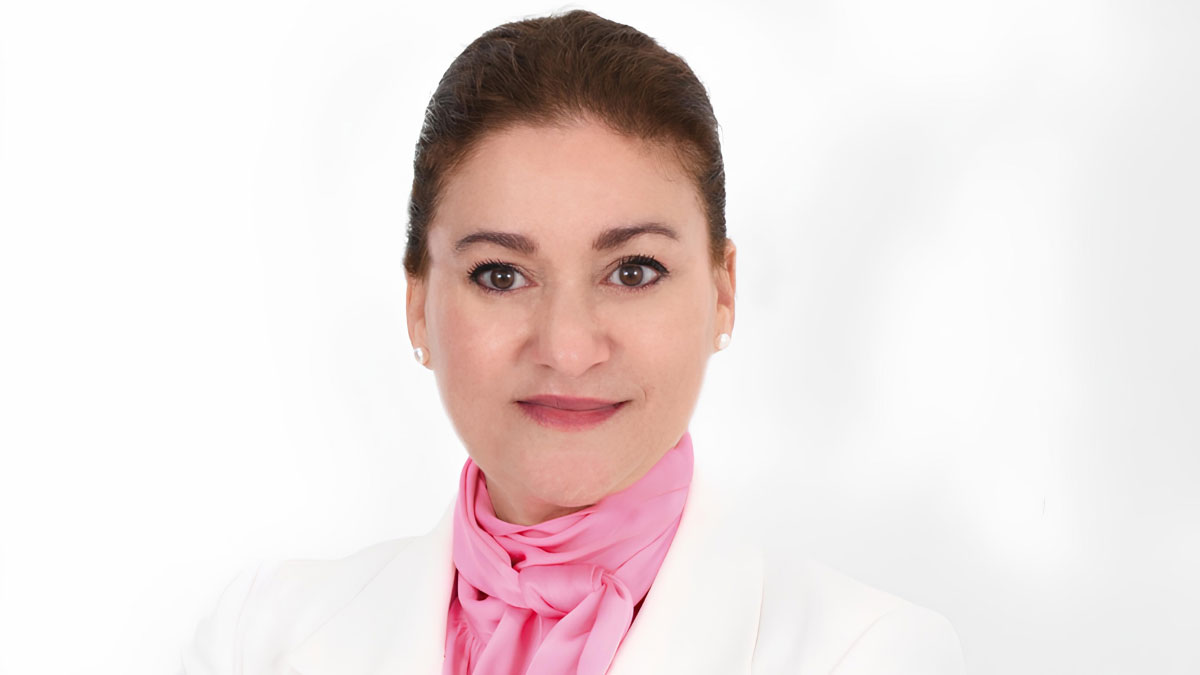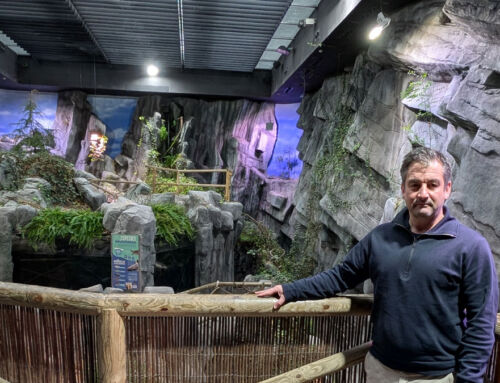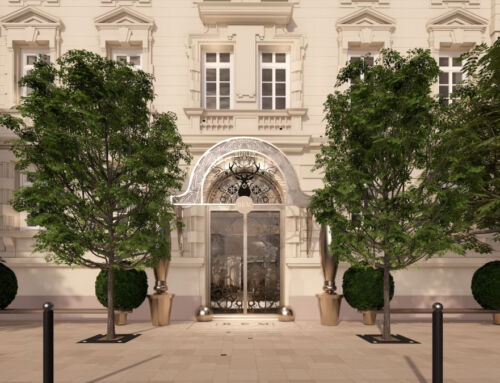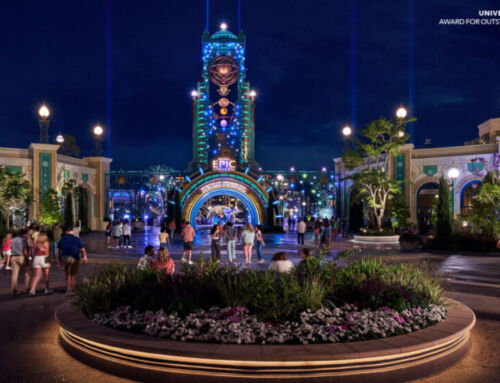We invite you to savour the clear voice of ideas and the practical and accurate approach of this outstanding executive and strategic consultant in the international hotel industry. With a solid career in team leadership and the repositioning of top-tier brands such as Barceló and Sofitel, as well as the Motiongate theme park in Dubai, Raquel López has demonstrated an exceptional ability to manage properties and franchises in multicultural environments. Competitive markets such as the Middle East led her to business transformation, brand optimisation, marketing strategy development, talent management… But let her tell you about it herself. You’re going to enjoy it.
Amusement Logic: After studying business management, you specialised in Hotel Management and Owner Relations. Was this a market necessity or a personal development?
Raquel López: I would say it was a combination of both. I began my professional career in hospitality when I moved to Turkey for personal reasons. That’s where my passion for the hotel and entertainment sector began.
Throughout this time, I have confirmed that the relationship between property and hotel management is critical to the sustainability of any project. On the other hand, my own curiosity and desire to learn led me to delve deeper into an area where I could add value.
In fact, I recently completed a specialisation course in Hotel Management and Owner Relations at Cornell University because I felt the need to go back to school to understand this profession from an academic perspective and to analyse hotel management from the property side as well.
A.L.: You have managed teams and projects in Spain, Turkey and, especially, for more than a decade, in the Middle East. What were the challenges and what management philosophy did you develop to achieve your goals?
R.L.: The biggest challenges were related to adapting to very diverse cultural contexts, different market dynamics and constantly evolving business models. Working in Europe and the Middle East means understanding very different mentalities, values and priorities, and transforming those differences into strengths.
My management philosophy is based on four pillars: respect for diversity, active listening, cultural and generational understanding, and clarity in communication. For me, it is essential to have a common goal that everyone feels is their own, because when a team identifies with the goal, energy and commitment multiply.
A.L.: As Vice President of Sales and Marketing for the Arab Gulf States at Barceló and Sofitel, your mandate was clear: to reposition and optimise brands. What was your repositioning strategy and how did you measure its success?
R.L.: My strategy was based on a thorough understanding of the expectations of both regional and international customers in highly competitive markets. Understanding what each market and segment expects, while identifying the unique selling points of each brand and property, was essential to building solid proposals.
From there, we redefined the value proposition, reinforced the consistency of the brand narrative, and optimised both distribution and digital visibility, in addition to strengthening relationships with strategic partners.
We measured success not only by financial results—increased revenue and improved RevPAR (Revenue Per Available Room) and EBITDA (Earnings Before Interest, Taxes, Depreciation, and Amortisation)—but also by customer satisfaction and brand recommendation indicators, which confirmed that we were heading in the right direction.
A.L.: At Yas Plaza Hotels, you led the transition from a multiple operational management model to a single operational structure with franchises. What were the biggest operational and corporate culture obstacles you faced in this process, and how did you overcome them?
R.L.: The biggest obstacle was changing mindsets and building a common vision. We had to break down the silos that each operator had created with their own individual interests in order to create a single destination, where competitors now become allies and the synergy of the destination and the teams generates value for everyone.
Moving from a vision focused on each individual hotel to an integrated management approach under different brands required a lot of internal communication. We also had to harmonise procedures and work-systems that were not always aligned. We overcame this by creating a clear area structure, with shared KPIs [or Key Performance Indicators] and training plans that helped the teams understand and adopt the new model.
In addition, moving from an operating model to a franchise model required combining the value of each brand and maintaining an excellent relationship with each of the franchisees, in order to leverage the best of each of them without cannibalising results.
A.L.: At Dubai Parks & Resorts, you built Motiongate’s marketing division from scratch. How do you build a brand and marketing strategy without historical data, and how do you align this with the expectations of a large investment?
R.L.: Motiongate was a new brand, but it had the enormous advantage—and at the same time the great challenge—of being built on world-class intellectual property such as DreamWorks, Columbia Pictures, Smurfs and Lionsgate. This allowed us to create an aspirational proposition with great appeal, but it also required extreme care to respect and enhance the value of each franchise within the same park.
The strategy was built with the help of international talent at all levels, combined with market research to understand what regional and international audiences expected, and with an inclusive brand narrative that aligned the expectations of investors and partners of the various intellectual properties.
We defined a very powerful launch plan whereby all stakeholders participated as partners rather than competitors, with strategic and tactical plans from day one to ensure that the investment would translate into global visibility and sustained visits.
A.L.: Based on your experience at STAFF Hotel, what are the biggest structural challenges for retaining and managing talent in a sector that is highly dependent on outsourcing?
R.L.: The big challenge is twofold: the shortage of resources and the high turnover rate in entry-level positions. The high demand for operational staff in the hospitality industry means that many workers change companies frequently, which impacts the continuity and quality of service. In addition, the shortage of trained personnel adds pressure in a sector where standards are very demanding.
To address this, we have worked on three fronts: offering job stability, investing in continuous training and process optimisation, and, above all, creating a sense of belonging even in outsourcing models.
I firmly believe that recognising the value of each person and motivating the team is key to ensuring quality in such a competitive environment.
A.L.: From your perspective at Insight Out Consultancy, what capabilities should leisure and tourism companies develop today to ensure their resilience in the face of global challenges?
R.L.: There are three key factors: intelligent digitalisation to ensure that systems are connected and aligned with the company’s strategy for quick, data-driven decisions; diversification and flexibility to reduce dependence on a single market or channel; and agile talent management that motivates and trains teams capable of adapting to constant change. In short, resilience comes from combining technology, people and a culture open to continuous learning.
A.L.: As a consultant, what aspects of your operational experience are most valuable in identifying and solving your clients’ challenges?
R.L.: My operational experience gives me a first-hand understanding of the complexity of running a hotel, theme park or group of properties. I have experienced the challenges of pressure to deliver results, coordinating with multiple stakeholders and managing multicultural teams. This gives me a practical and realistic view: I know what works and what doesn’t.
As a consultant, this experience translates into empathy and practical, not theoretical, proposals. I can quickly identify critical issues because I have already faced them, and propose solutions tailored to the context and actual resources of each client.
A.L.: Throughout your career, you have made crucial decisions regarding multiple properties and brands. Could you share one of the most difficult decisions you have made and the process you went through to reach it?
R.L.: It is difficult to choose one experience, but probably one of the most difficult decisions was the repositioning of the Sofitel brand in Egypt, which involved elevating the brand experience to the luxury market. This involved drastic changes in the portfolio of partners, suppliers and customers, which meant short-term sacrifices and some initial resistance. However, the objective was clear: to consolidate the brand within the luxury segment and ensure sustainable results in the medium and long term.
The process required in-depth market analysis, benchmarking [a technique for emulating best practices found outside or sometimes within the company itself] with leading competitors for the new brand positioning and, above all, transparent communication with teams and stakeholders to redefine the business model and align expectations.
Team training was also essential, so that they could understand and embrace the new standard of luxury in every detail of the operation. It was a complex decision, but undoubtedly a very successful one.
A.L.: With such an inspiring career, what advice would you give to the younger generation aspiring to strategic leadership positions in the international hospitality and consulting sector?
R.L.: My advice is to cultivate curiosity and the ability to learn continuously. The sector changes very quickly, and those who adapt and learn with agility are the ones who make a difference. Leading is not just about making decisions, but also about listening, understanding and motivating teams. I would tell them to always seek a common purpose in which everyone feels included, because the best results come from committed people who believe in what they do.
I would also tell them to lead with authenticity: being genuine inspires more than any speech. And above all, to seek to do something they truly enjoy, where they feel like themselves, because passion shows and makes a difference.






